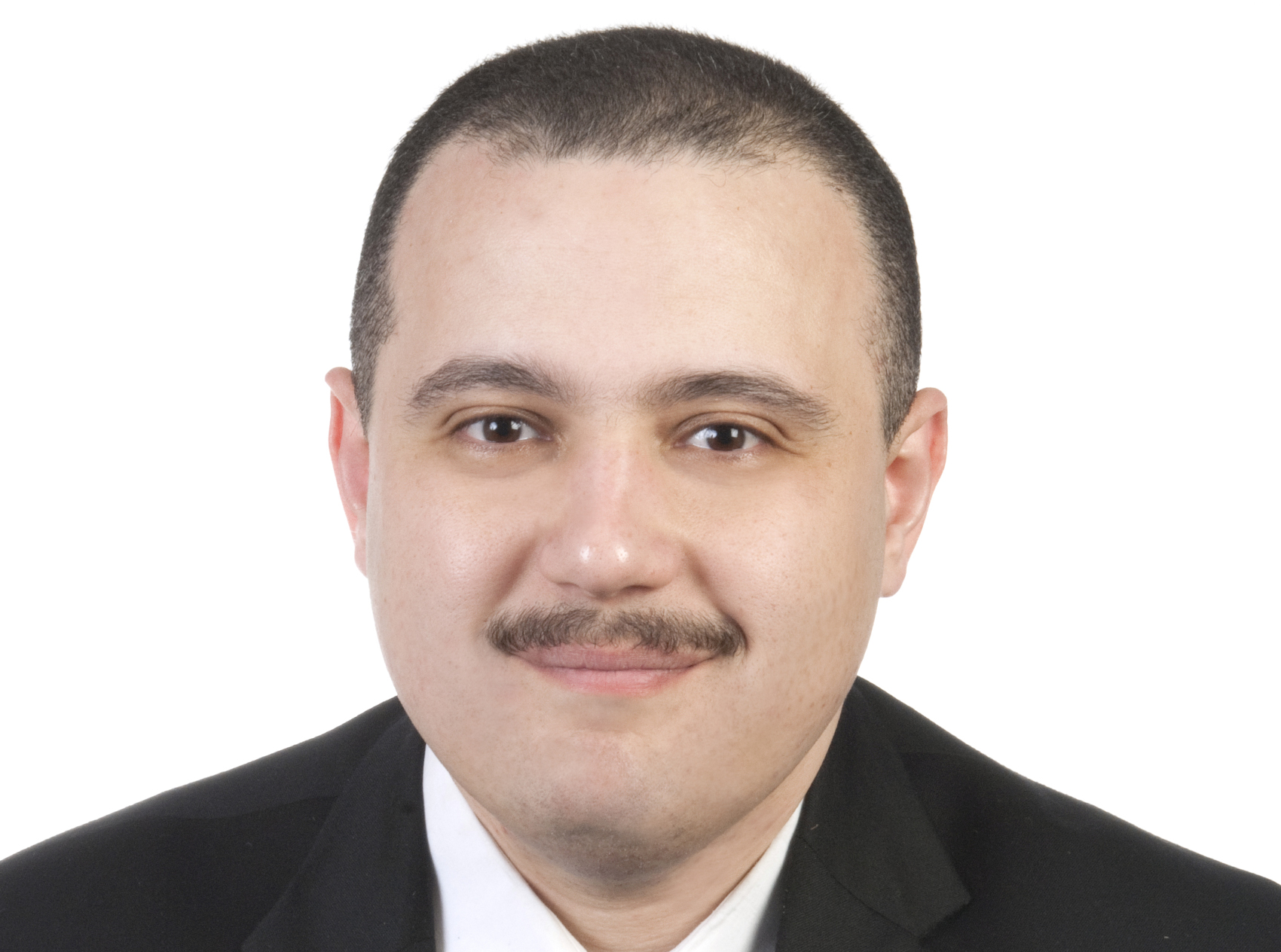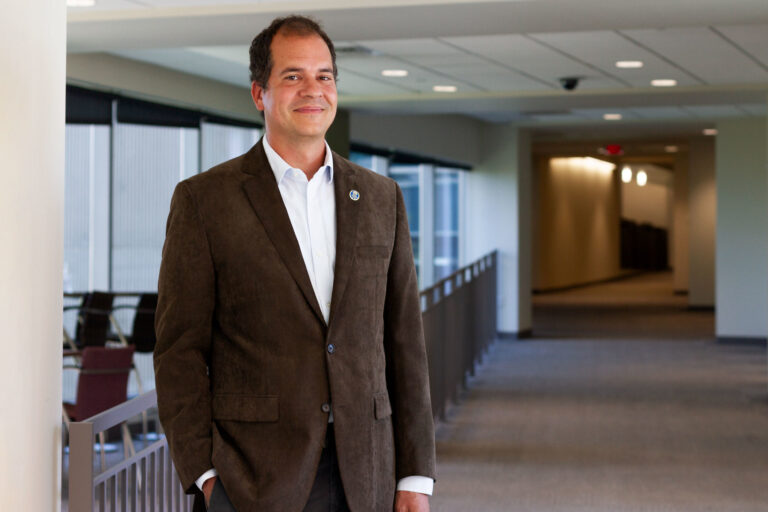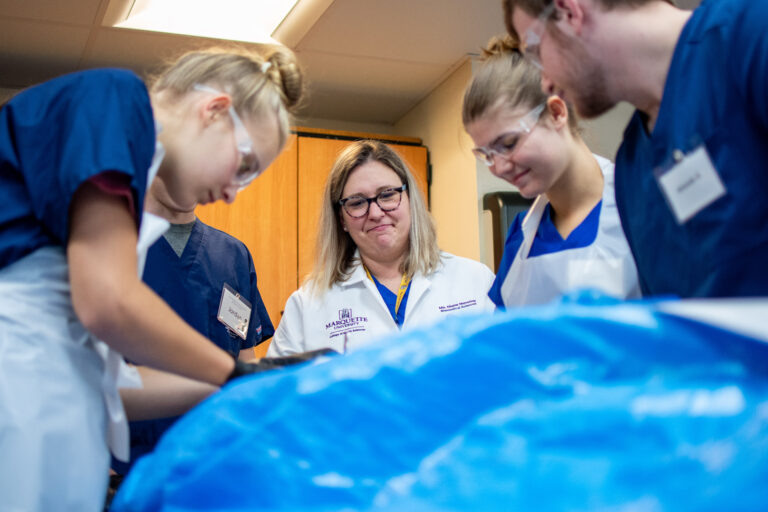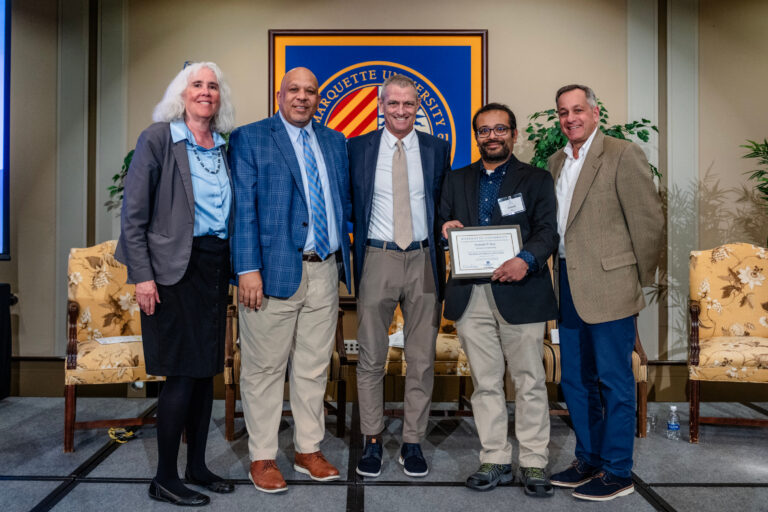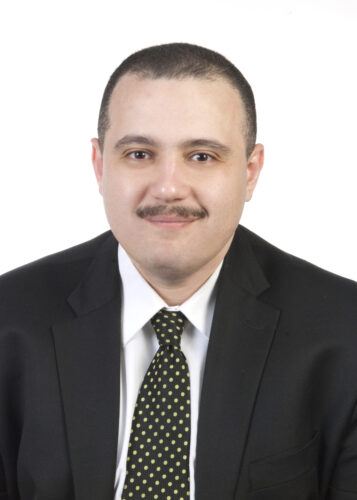 Dr. Ayman EL-Refaie, Werner Endowed Chair in Secure/Sustainable Energy and professor of electrical and computer engineering in the Opus College of Engineering, and his research team were approved for phase two funding for their grant from the U.S. Department of Energy to develop the next generation of electric drivetrains for aerospace propulsion. The award was initially announced in March 2021 with a phase one value of $1.6 million over 18 months.
Dr. Ayman EL-Refaie, Werner Endowed Chair in Secure/Sustainable Energy and professor of electrical and computer engineering in the Opus College of Engineering, and his research team were approved for phase two funding for their grant from the U.S. Department of Energy to develop the next generation of electric drivetrains for aerospace propulsion. The award was initially announced in March 2021 with a phase one value of $1.6 million over 18 months.
This grant is a part of the Advanced Research Projects Agency-Energy’s (ARPA-E) Aviation-class Synergistically Cooled Electric-motors with iNtegrated Drives (ASCEND) program. The goal will be to develop an electric drivetrain which meets or exceeds the ARPA-E’s system-level targets for power-to-weight ratio and system efficiency.
Phase two will focus on component procurement, system integration, and verification testing of the technology. The first phase of the project focused on finalizing a conceptual design, sub-component and component testing, and risk retirement.
Marquette is the lead institution on the award with sub-awards and partnerships with National Renewable Energy Lab, Florida State University and Raytheon Technologies Research Center. Dr. Nathan Weise, assistant professor of electrical and computer engineering at Marquette, is a co-principal investigator on the grant.
The team will develop a novel motor enabled by additive manufacturing and a novel thermal management scheme; novel modular power electronics topology; and tight integration concepts coupled with advanced and shared thermal management system.
ASCEND projects work to develop innovative, lightweight, and ultra-efficient all-electric powertrain with advanced thermal management systems that help enable efficient net-zero carbon emissions for single-aisle passenger commercial aircraft. The program works to decrease energy usage and associated carbon emissions for commercial aircraft propulsion systems.
